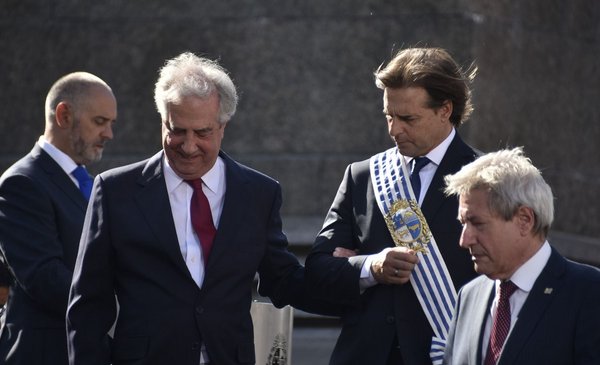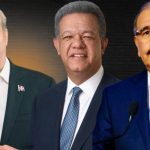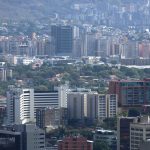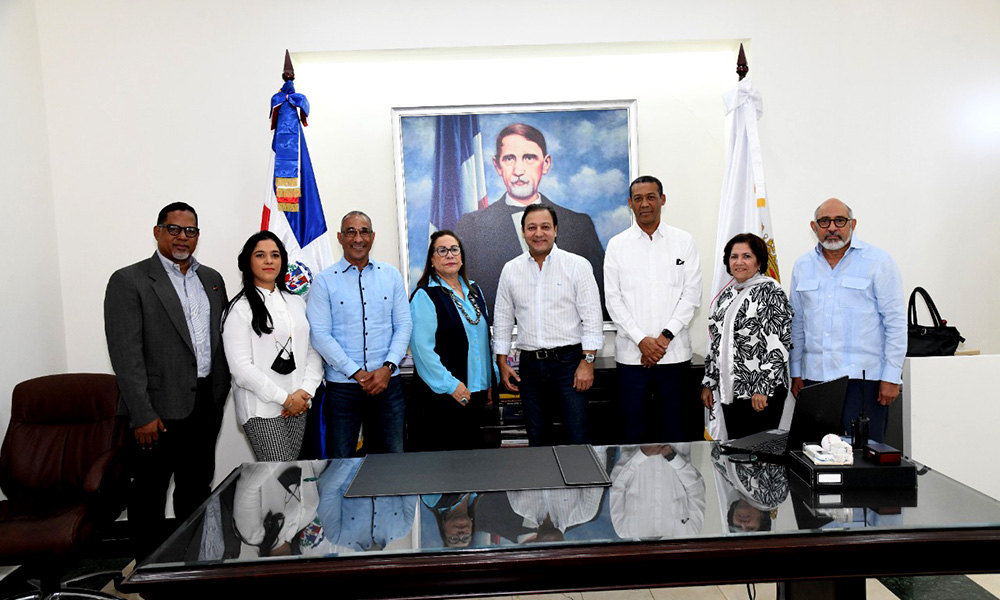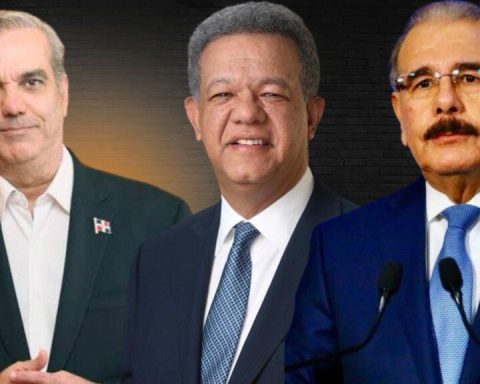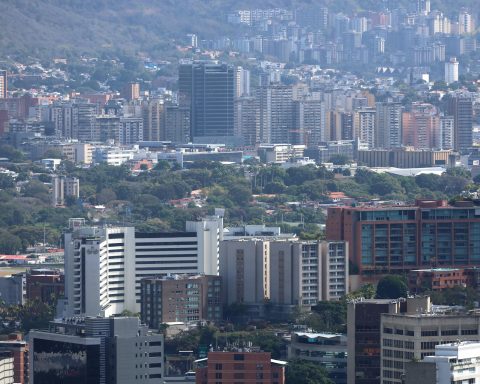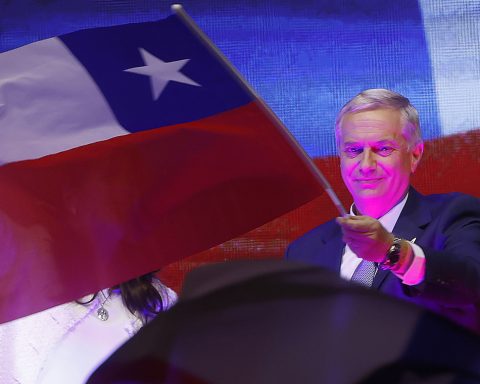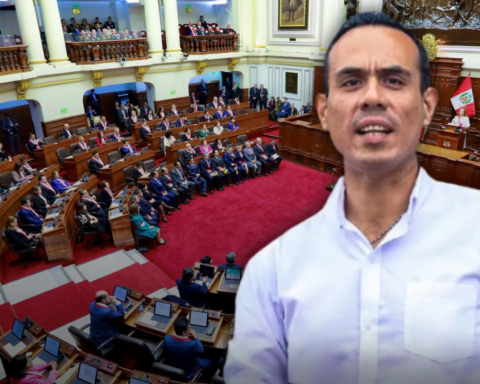March 2019. The then candidate Luis Lacalle Pou He was walking from one side to the other of a catwalk at the launching ceremony of his presidential campaign when, with a firm voice and gesturing with one arm, he made a promise: “If the National Party wins, the increase in taxes, fees and fuels. Was over”.
The concept was repeated several times in the race to the Executive Tower. Around October and also in November, the presidential candidate spoke a lot about tax management and slipped criticism of the economic management of the left with direct allusions to the then minister Daniel Astori.
Almost three years have passed since that initial speech that the nationalist gave in Parque Viera, Lacalle is currently the President of the Republic and that repeated catchphrase fell by the wayside due to the successive rises in rates and in particular due to the increase in fuels that has caused furious criticism in the now opposition Broad Front.
Lacalle was consulted this Thursday for that electoral promise and in particular regarding the impact on the prices of gasoline and diesel, and acknowledged that “it is true” that the announcement could not be fulfilled. As an explanation, the president resorted to the unpredictable international context.
“If I could foresee before March 1 that the coronavirus would explode on March 13 and that the world would change as it did, and Russia’s unjustified attack on Ukraine and that oil would double or more than double at its price, obviously I would not have made that commitment,” he alleged during an interview with Telemundo (channel 12).
The government in 2016
The unfulfilled promise, the criticism from the opposition, and the appeal to exogenous factors supposedly difficult to guess beforehand have, with their nuances, a parallelism with what happened in the previous administration, led by Tabaré Vázquez (Frente Amplio), and especially with the debate that opened in 2016 when the government announced the “fiscal consolidation” that implied an increase in taxes.
During the race that led the Broad Front to its third consecutive government, both Vázquez and Astori affirmed that there would be no new fiscal demands if the left won, but reality also took that promise and the front administration received criticism from the opposition who accused it of applying a “tariff” and a “disguised fiscal adjustment.”
In that context, the then President of the Republic justified that the decision was explained by the “important changes” in the regional and international context and during a press conference, he justified, for example, that “no one could foresee” the economic situation in Brazil, still plagued by the political drama that led to the impeachment of Dilma Rousseff. “But reality is like that,” he added at the time, with a tone similar to that assumed by Lacalle this week.
When the Minister of Economy and Finance was later questioned in the Senate about the tax situation, his justification was similar. “When we said «we are not going to put more taxes» it was because we did not want to do it. That was our political will, but reality changes and forces us to change,” Astori said, according to the stenographic version of the session.
In that instance, where Jorge Larrañaga was the interpellating senator and the late minister harshly questioned Astori for “non-compliance with the word”, the person in charge of the economic policy of the Broad Front said that there had been “negative influences from Brazil due to internal inconveniences of that country, and important problems in Argentina” that had repercussions in the country. But, as Astori stressed“never in our contemporary history” had there been “the influence of both countries at the same time”.
On other occasions, the minister again alluded to the international context to justify the tax decision.
The argument of Lacalle Pou, at the time leader of the opposition, qualified Astori’s argument and dismissed it. “From 2012 to date, everyone saw that things were not going well and that lie was not enough,” said the now president of the Republic in 2016, rejecting the allegations made by the Vázquez government.
One of the questions that Lacalle Pou is now being asked is that beyond unforeseen events such as the pandemic or the war – the latter only influenced the increase now in March –, during the electoral campaign there were warnings, both from economists and from the Broad Front, with respect to the “risk” of making commitments such as not increasing rates in a context of high international instability.
The position of the opposition
From the left they have lashed out at officialism for the increases in fuel prices and they have blamed him for setting aside the electoral promise that Lacalle Pou made during the campaign that brought him to government.
A few years ago it was the whites who made the same questions and alleged the non-compliance with the announcements of the Broad Front in 2014 towards the presidential elections.
During Astori’s questioning in 2016, Lacalle Pou said that they could “having warned that they were being told that the oven was not for buns or for making easy promises”something that in a certain sense is also outlined now from the Broad Front when the decision to adjust fuel rates based on the PPI, which is calculated by Ursea following the international price of oil, is questioned.
In that discussion a few years ago, Lacalle Pou questioned that “from the vice president, the candidate for president, the minister to the undersecretary, everyone was untrue.” And he added from his chair in the upper house that “what is serious is not what happened, but the erosion of the confidence of Uruguayans in the economy.”
A similar concept was handled by former President José Mujica when he questioned the Lacalle Pou government for failing to comply with its electoral announcements. “That ends up affecting the credibility of people in politics,” he launched in the middle of last year.
One point for each
Speaking of the rise in fuel prices, the economist Agustín Iturralde (CED) said on Wednesday that “oppositions at all times make a light reading of the issue and try to get political juice out of what they can.”
“The government is now having a hard time raising fuel prices because it was an issue that was raised very strongly in the campaign. What happened in the past five years and is not happening now is that there was a very significant overpricing charge. With the fuels, cash was made; there was collection of the State with the collection of fuels. That is not happening now and that is the point of the government. The point of the opposition, reasonably, is: you said that fuel prices were not going to go up and they went up. That is also true, ”he stated on the En Perspectiva program.
